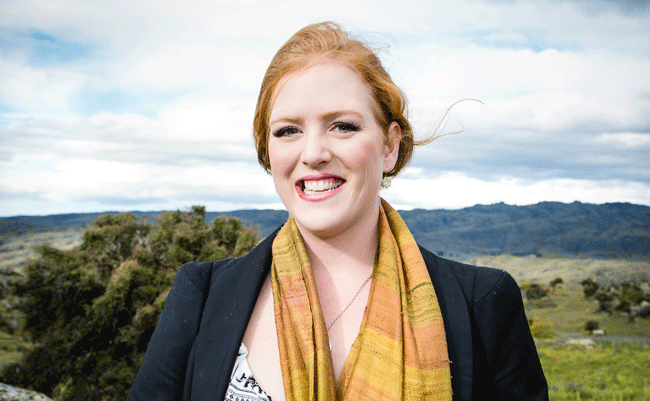
Sarah Walker - one of 23 University of Otago researchers to receive a Career Development Award from the Health Research Council.
Dunstan Hospital physiotherapist Sarah Walker has received a Clinical Research Training Fellowship from the Health Research Council to undertake research into rural allied health professionals' skills as part of her PhD studies.
She will investigate the scope of practice, challenges and complexities experienced by rural allied health professionals to determine whether they require fundamentally different skills to their urban counterparts.
She describes it as a first step in addressing the skills shortage in rural areas and reducing the 'huge disadvantages' faced by rural communities when it comes to accessing healthcare.
"This project is about supporting rural practitioners and rural allied practitioners in particular. This award ticks lots of firsts and we are very proud of what Sarah has achieved."
“Of all the geographic categories, New Zealand's rural towns have the lowest socioeconomic status, highest proportion of Maori and highest avoidable mortality rates,” Mrs Walker says.
Yet, despite the higher health needs, rural residents have poorer access to health services and grater costs in accessing these services, which is largely due to workforce shortages in rural areas.
Currently in New Zealand, only 3 per cent of physiotherapists hold an annual practising certificate to work in rural areas and a similar pattern is repeated across a number of health professions, she says.
As well as not having a large presence in rural areas, health professionals from all disciplines in rural areas have been found to sustain a heavier workload and carry a higher level of clinical responsibility as a result of carrying out a wider range of services.
In Dunstan Hospital, where Mrs Walker works for Central Otago Health Services, she's required to treat acute in-patients and carry out rehabilitation both in hospital and in homes.
“It's the complexities that you get – rural hospitals don't have specialist neuro-physiotherapists, or physios that have an interest in respiratory conditions – we have to take up those roles for ourselves.”
To date, there is no recognition of the 'rural generalist' skillset required, says Mrs Walker, nor are there rural-specific career-pathways for allied health professionals.
Her research will help determine if there's a need for a distinct area of specialty within rural allied health and a need for extra support and training, to ensure that rural communities are provided with a skilled and relevant health workforce to meet their needs.
Associate Dean Rural at the University of Otago, Dr Garry Nixon, is delighted that Mrs Walker has received the training fellowship.Dr Nixon works alongside Mrs Walker at Dunstan Hospital in Clyde where he is a rural hospital generalist.
"It helps the next generation of outstanding researchers and research leaders develop their careers with us."
“This is fantastic news for rural health in New Zealand,” Dr Nixon says.
“Health professionals working in rural areas face challenges that are different to those faced by their urban colleagues.
“This project is about supporting rural practitioners and rural allied practitioners in particular. This award ticks lots of firsts and we are very proud of what Sarah has achieved.”
Nationally, 67 researchers shared $13.4 million in the HRC's 2020 Career Development Awards announced last week. Twenty-three University of Otago researchers secured $3.8 million.
Three scientists carrying out research aiming to find new ways of treating cancer – Drs Nicholas Fleming, Christoph Goebl and Rachel Purcell - have received the prestigious Sir Charles Hercus Health Research Fellowships worth almost $1.8 million. While a number of Māori and Pacific Health Development Awards have been shared among both staff and students.
Deputy Vice-Chancellor (Research and Enterprise) Professor Richard Blaikie says the University is delighted to receive this support from the Health Research Council.
“It helps the next generation of outstanding researchers and research leaders develop their careers with us.”
Read more about the Otago recipients here.